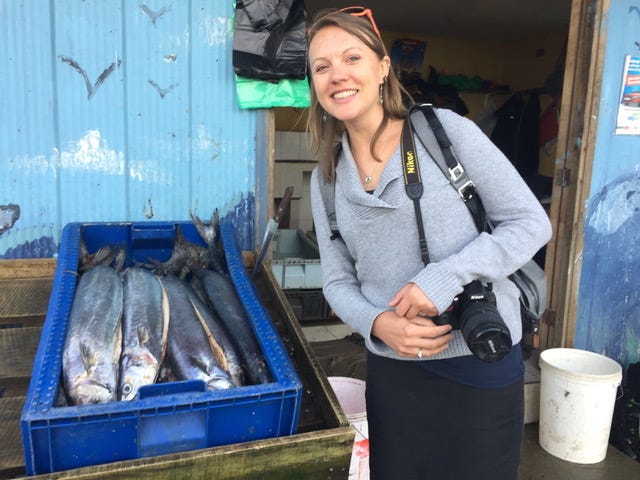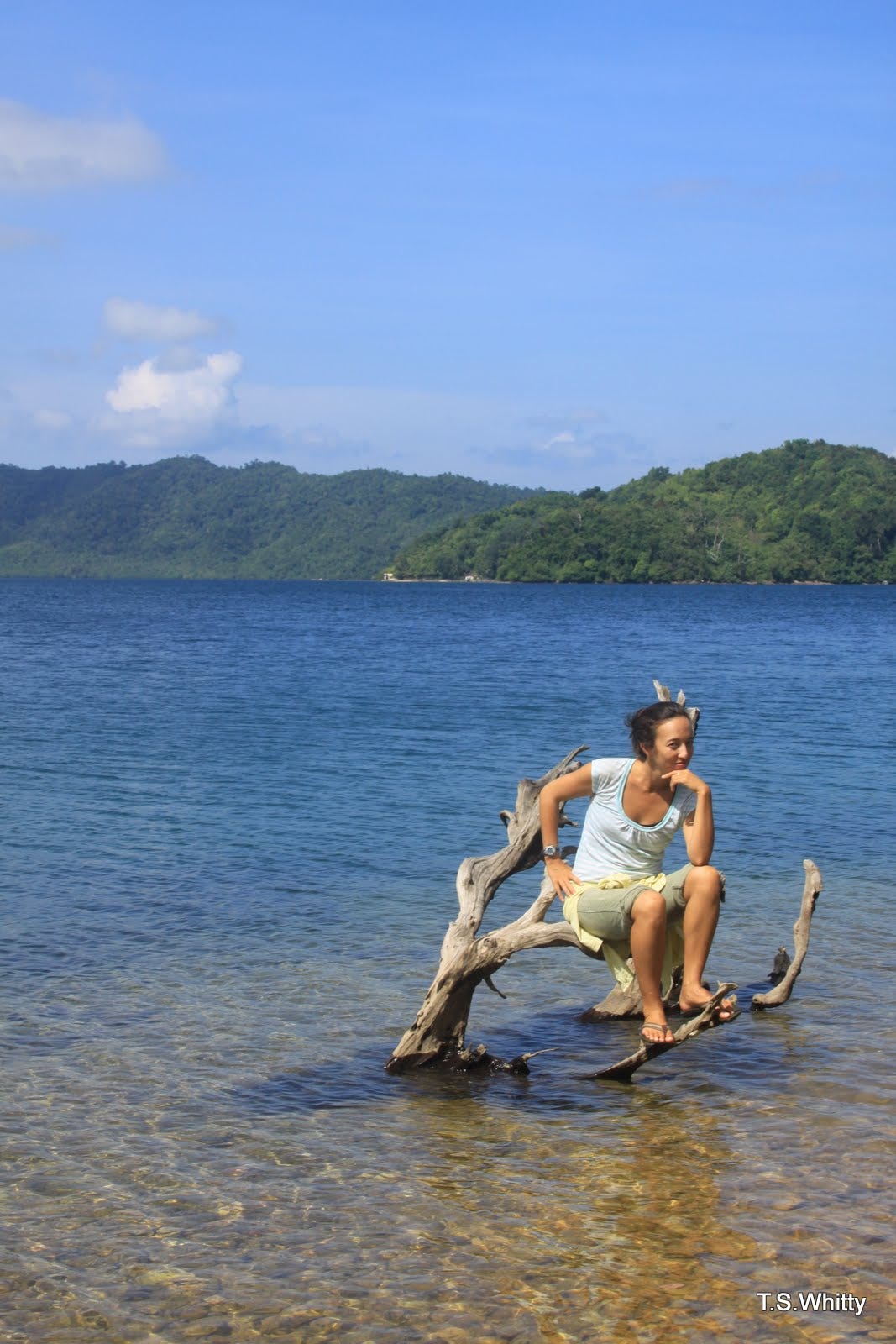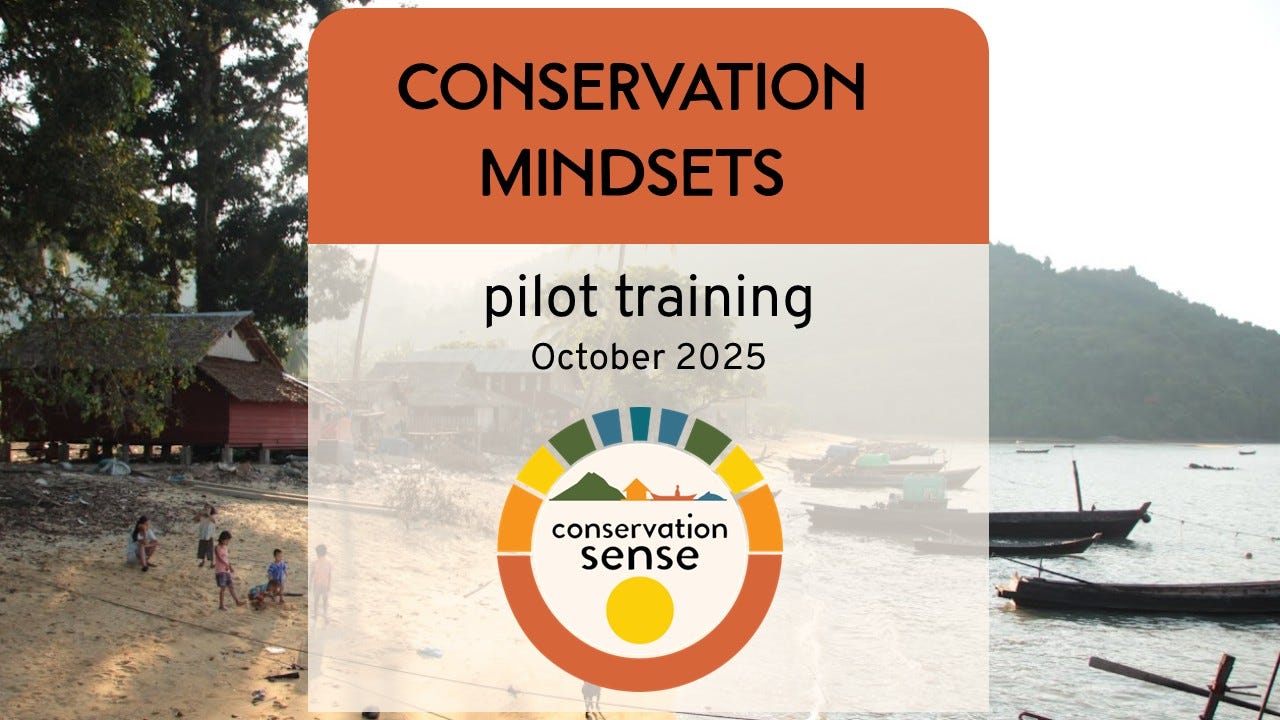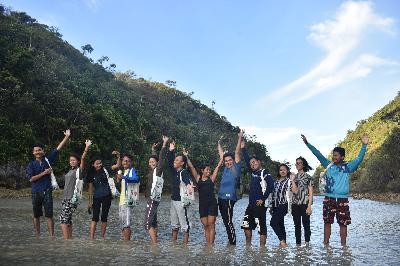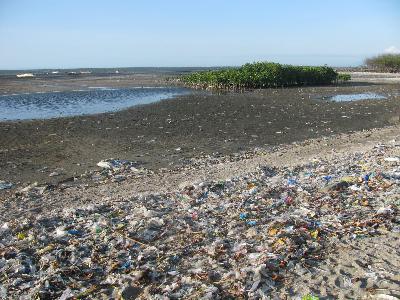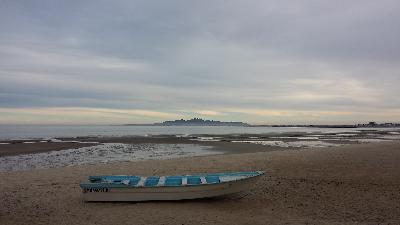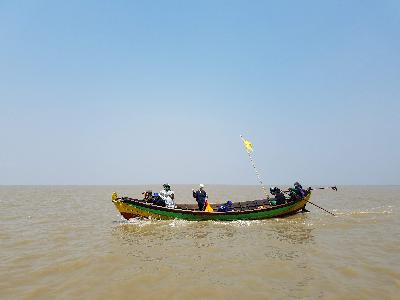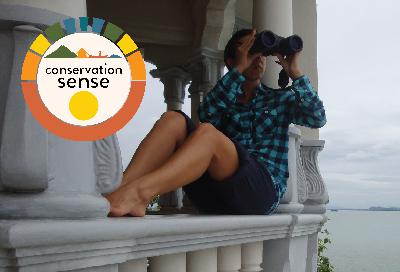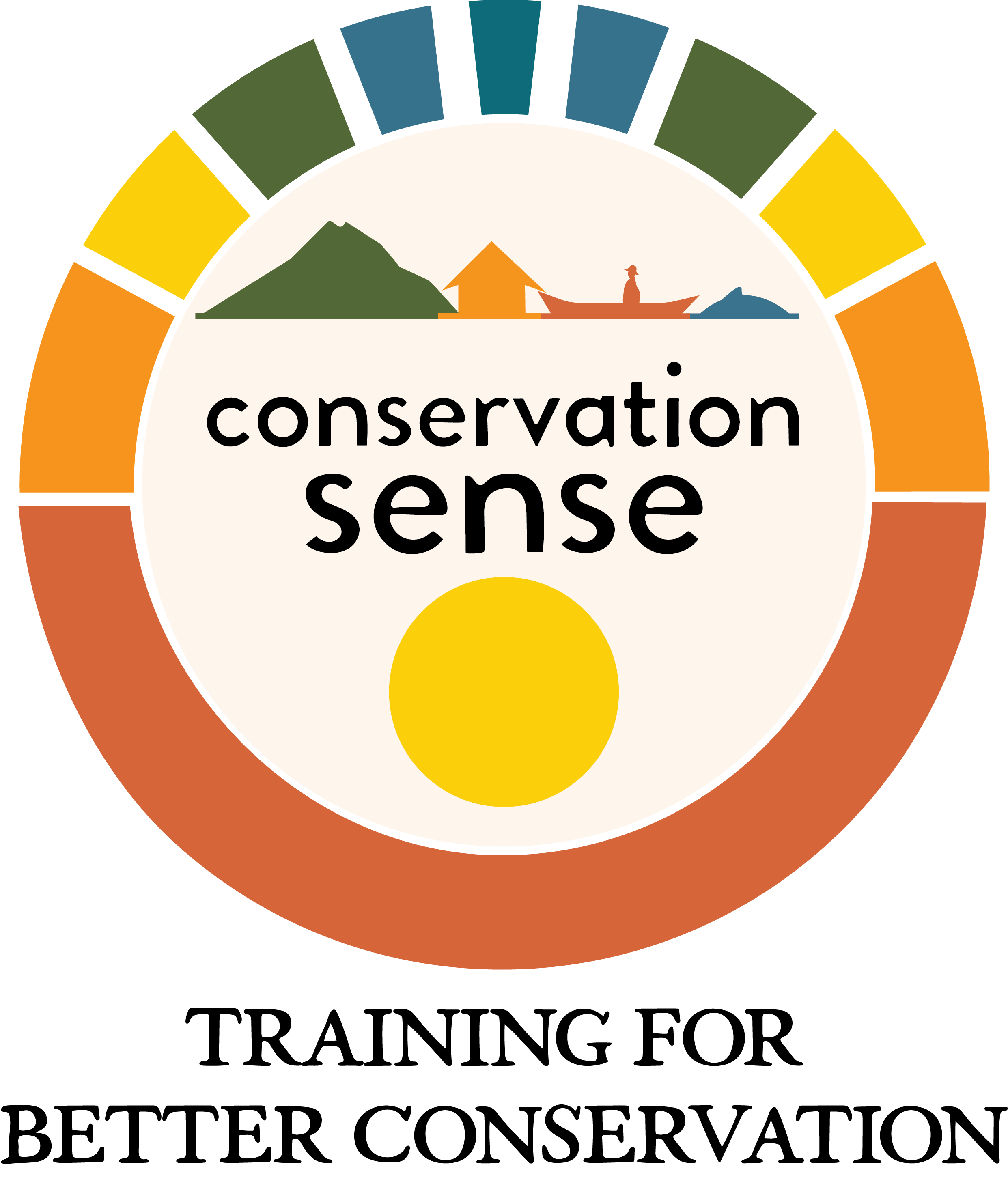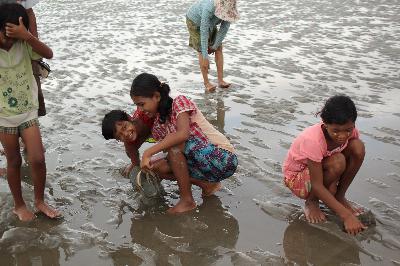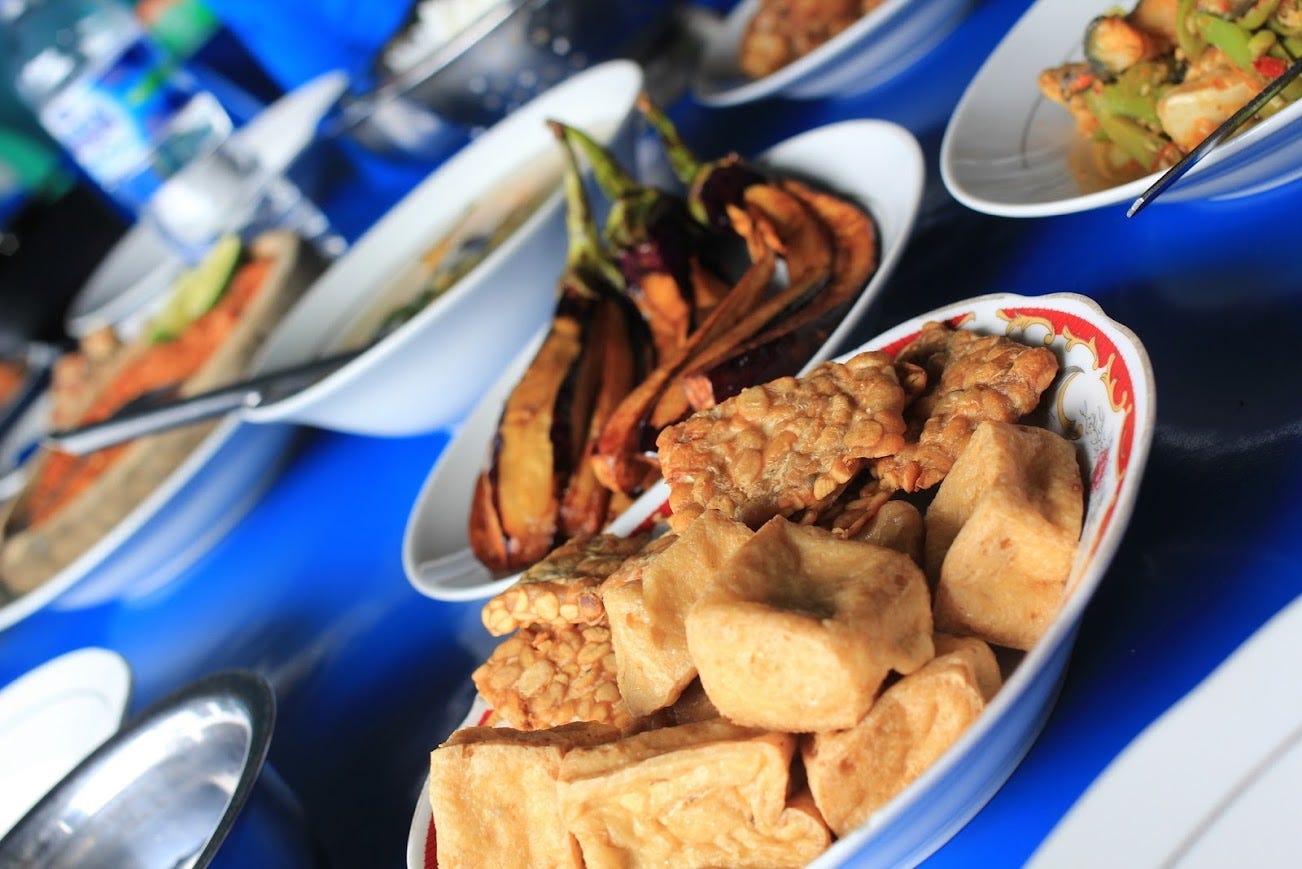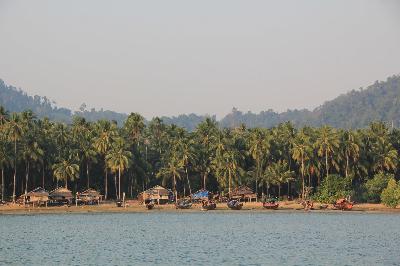Discover Conservation Realist
Conservation Realist

Conservation Realist
Author: Getting real about better conservation
Subscribed: 1Played: 0Subscribe
Share
© Conservation Realist
Description
Mindful, no-nonsense explorations of conservation concepts and practices, informed by actual on-the-ground experiences and lessons from diverse individuals and sectors. Hosted by Dr. Tara Sayuri Whitty.
conservationrealist.substack.com
conservationrealist.substack.com
42 Episodes
Reverse
To close out 2025, I'm happy to share this conversation with Alexis Rife, a colleague & friend whose insights I've long appreciated through her work with fisheries and in facilitation. She shares wonderful thoughts on systems change, relationship building, and what we as individuals can strive to do - and how conservation needs more of us to be willing to do something different. Thanks for being with me, and I'll be back in February 2026! This is a public episode. If you would like to discuss this with other subscribers or get access to bonus episodes, visit conservationrealist.substack.com
2025 is almost over, and so is season 2 of Conservation Realist! In the penultimate episode, I invite you to join me in thinking about how our work makes us feel. I've been going through some existential career musings, and it's helped me get back to the the "roots" of how I'd like to engage in conservation. Please share your thoughts on your own "roots"! This is a public episode. If you would like to discuss this with other subscribers or get access to bonus episodes, visit conservationrealist.substack.com
A lot of great learning on conservation (really, any) leadership from Dr. Eric Kaufman, expert of leadership-in-practice based at Virginia Tech. We chat about eco-leadership as a decentralized paradigm of leadership (more focused on community than individual heroes), Inner Development Goals, and cultivating conditions that allow leadership to emerge and thrive! This is a public episode. If you would like to discuss this with other subscribers or get access to bonus episodes, visit conservationrealist.substack.com
Back from my unplanned little break! Sharing some intriguing thoughts and questions from the Conservation Mindsets pilot course, related to: how we frame "conservation", social dynamics and notions of obligation, and tricky issues related to implementing more ethical, equitable conservation. Many thanks to the participants who shared their insights with me! This is a public episode. If you would like to discuss this with other subscribers or get access to bonus episodes, visit conservationrealist.substack.com
Thoughts on the role of peer-reviewed literature in conservation, and related issues/implications. I would LOVE to hear your thoughts on this, too! This is a public episode. If you would like to discuss this with other subscribers or get access to bonus episodes, visit conservationrealist.substack.com
A chat with Wint Hte of IUCN Myanmar on his experiences engaging communities in Fisheries Conservation Zones and supporting youths - urban and rural - in accessing opportunities in the conservation field This is a public episode. If you would like to discuss this with other subscribers or get access to bonus episodes, visit conservationrealist.substack.com
Well, it's time for a positive mindset to feature in this preview of my Conservation Sense trainings on conservation mindsets. So, let's talk about confidence, and how important it is for conservation professionals and stakeholders. This is a public episode. If you would like to discuss this with other subscribers or get access to bonus episodes, visit conservationrealist.substack.com
Another "mindset to avoid" preview from the Conservation Sense trainings on mindsets. This is a public episode. If you would like to discuss this with other subscribers or get access to bonus episodes, visit conservationrealist.substack.com
In this installment of the Conservation Sense series on mindsets, we'll cover moral equilibrium and moral licensing. Why does it not occur to many of us to be more concerned about the moral implications that our work has for other humans? Or to even just be more attentive to the actual outcomes of our work, for people and for nature? Moral licensing might just be part of it! This is a public episode. If you would like to discuss this with other subscribers or get access to bonus episodes, visit conservationrealist.substack.com
In this installment of the Conservation Sense training series previews, we'll briefly cover critical thinking and mindfulness. These, plus systems thinking, are the "big three" that work together to guide more thoughtful, strategic conservation work (well, really, any type of work, but conservation is what we're here for!). This is a public episode. If you would like to discuss this with other subscribers or get access to bonus episodes, visit conservationrealist.substack.com
A "notes from the field" post sharing the wonder of exploration and learning in the Gulf of Mottama. I know many of you have similar experiences, and I hope this post reminds us all to stay in touch with that sense of wonder as we engage in the challenging, but inspired, work that we do. This is a public episode. If you would like to discuss this with other subscribers or get access to bonus episodes, visit conservationrealist.substack.com
Back to the Conservation Sense series! Time to dive into conservation mindsets. Today I introduce "the big three" that have been central to how I train researchers and conservationists: systems thinking; critical thinking; mindfulness. Here, I'll focus on systems thinking, which involves a lot of doodling (for me). This is a public episode. If you would like to discuss this with other subscribers or get access to bonus episodes, visit conservationrealist.substack.com
A lovely chat with Emily Miller (California Sea Grant and Fishful Future) who works to build community around local seafood in San Diego. Key points include: the importance of trust in working with local fisheries; her experiences as an at-sea fisheries observer; challenges facing the local seafood sector in San Diego, and how we can help; how her biracial background (hapa pride!) inspires and shapes the biocultural aspect of her work This is a public episode. If you would like to discuss this with other subscribers or get access to bonus episodes, visit conservationrealist.substack.com
Post 2 in the Conservation Sense series! Since conservation is a human process, why does natural science remain such a dominant force in the conservation sector? And what are the impacts of this disproportionate influence? Let's explore the idea of "natural science privilege." This is a public episode. If you would like to discuss this with other subscribers or get access to bonus episodes, visit conservationrealist.substack.com
This is the foundation of how I approach conservation - understanding it as a human process, and not a process that involves some "human dimensions" on the side. This is the beginning of my "Conservation Sense" series, a feature of Conservation Realist. This series is more training-focused toward building awareness and skills for better conservation, and serves as a preview of my more in-depth Conservation Sense trainings that will be offered later in 2025. Let's dive in! This is a public episode. If you would like to discuss this with other subscribers or get access to bonus episodes, visit conservationrealist.substack.com
This is the first of a few episodes on how to better incorporate women in conservation activities, based on one of my favorite consulting outputs: a training for Critical Ecosystem Partnership Fund based on stories from their Indo-Burma Hotspot grantees who've amplified women's involvement in conservation. It's publicly available, so I wanted to share highlights - starting with making case for women's involvement, and key considerations for doing so responsibly. This is a public episode. If you would like to discuss this with other subscribers or get access to bonus episodes, visit conservationrealist.substack.com
Main point: read "The Divide: A Brief Guide to Global Inequality and its Solutions" (published 2017) by Jason Hickel, especially if you're from the Global North. The Global North's harmful legacy on the Global South is substantially more extensive, purposeful, and entrenched in international structures than I had previously realized - with important implications for conservation. This is a public episode. If you would like to discuss this with other subscribers or get access to bonus episodes, visit conservationrealist.substack.com
I've heard people boldly proclaim: "If you're going to work with small-scale fishing communities, you have to eat fish." Hmm... no. Not true. But there certainly are important caveats/exceptions and considerations! In this "Advice" episode, I dive into this admittedly niche topic for any vegetarian young researchers who are wondering if they can maintain their values while doing fieldwork. I've been a vegetarian for 18 years, and worked with small-scale fisheries for 17. I've been just fine. This is a public episode. If you would like to discuss this with other subscribers or get access to bonus episodes, visit conservationrealist.substack.com
Story time, sort of, from fieldwork. The Moken, and indigenous groups that have a lifestyle so deeply connected to nature, inspire widespread fascination. That's fair. The problem is when we let that obscure their reality as actual human beings with rights and struggles. Some insights from a field visit back in 2017 to learn how the Moken and other stakeholders perceived the process of establishing Myanmar's first LMMAs. This is a public episode. If you would like to discuss this with other subscribers or get access to bonus episodes, visit conservationrealist.substack.com
A fascinating chat with one of my most important mentors, Dr. Louella Dolar, matriarch of marine mammal research in the Philippines. Wild adventures in the field, the important role of social workers in the establishment of marine sanctuaries in the 1980s, the outlook for conservation in the Philippines, and her boundless curiosity and tenacity - all in one conversation. This is a public episode. If you would like to discuss this with other subscribers or get access to bonus episodes, visit conservationrealist.substack.com


